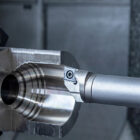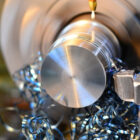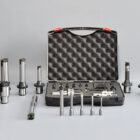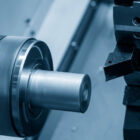Many different industries depend heavily on precision boring tools to achieve high levels of accuracy, tight tolerances, and excellent surface finishes. Let’s explore the various ways that precision boring tools are used in various industrial sectors.
The automotive industry
Precision boring tools are used in the automobile sector to create engine blocks, cylinder heads, gearbox parts, and brake system components. The creation of high-performance engines with ideal fuel efficiency and minimal emissions is made possible by these techniques. They also aid in making sure that the parts are accurate for reliability and safety.
The aerospace industry
The aircraft industry has the highest standards for component precision and dependability. Critical items such as aviation engine components, landing gear components, and structural components are machined using precision boring equipment. The tight tolerances necessary for safe and effective aerospace operations are helped by these tools.
The defence/military industry
Precision machining is necessary for a variety of components used in weapon systems, armoured vehicles, and communication technology for the defence and military industries. To produce parts that adhere to exacting standards and guarantee the performance and safety of defence systems, precision drilling tools are necessary.
The surgical industry
In the medical industry, where components must adhere to strict quality and safety standards, precision is of utmost significance. Important medical devices and implants, such as orthopaedic implants, prosthesis, and surgical instruments, are made with precision drilling tools. This is how they are able to contribute to the development of precise, unique solutions that enhance patient outcomes.
The manufacturing industry
The use of precision boring equipment is widespread in typical production operations. In a variety of industries, including the manufacture of consumer items, construction machinery, and industrial machinery, they are used to precisely drill and bore components. These instruments support the upkeep of product performance and quality.
The oil and gas industry
Precision boring tools are used in the oil and gas industry to produce parts for pumps, valves and drilling machinery. These devices guarantee the dependability and durability of machinery used in difficult and demanding settings, such as deep-sea drilling and high-pressure applications.
The electronic industry
Precision boring tools are used to make holes and features in printed circuit boards (PCBs) and semiconductor wafers during the production of electronics and semiconductors. The miniaturization of these gadgets is made possible by these technologies, which helps create electronics that are more compact, potent, and energy-efficient.
Advantages of precision boring tools in the aforementioned industries
- High accuracy: By achieving incredibly tight tolerances, precision boring tools can guarantee that components meet strict requirements.
- Efficiency: High-speed and efficient machining are made possible by precision boring tools, which also boost productivity.
- Versatility: Precision boring tools offer manufacturing flexibility since they may be modified for different machining operations.
- Consistency: They guarantee consistent outcomes, lowering component quality variability.
- Surface finish: By generating excellent surface finishes, these machines eliminate the need for extra finishing procedures.
- Cost savings: In manufacturing operations, reduced scrap rates, increased tool life, and reduced rework all result in cost savings.
- Minimized material wastage: Precise machining helps with sustainability initiatives by minimizing material wastage.
To sum up, precision boring tools are essential in fields where accuracy, dependability, and efficiency are crucial. And, when it is FineTech Toolings’ precision boring tools in Bangalore, they can assist in the creation of exceptionally high-quality parts for the general manufacturing, aerospace, automotive, medical, oil and gas, defence, electronics, and other industries. These tools give manufacturers the ability to meet the requirements of contemporary engineering and technology while maintaining accuracy, precision, and efficiency.






